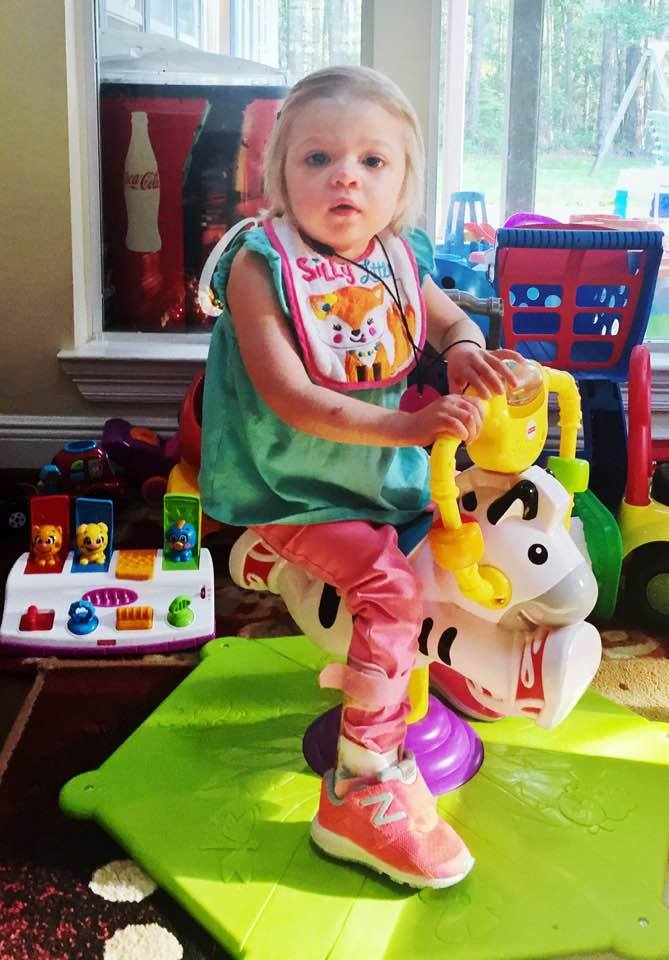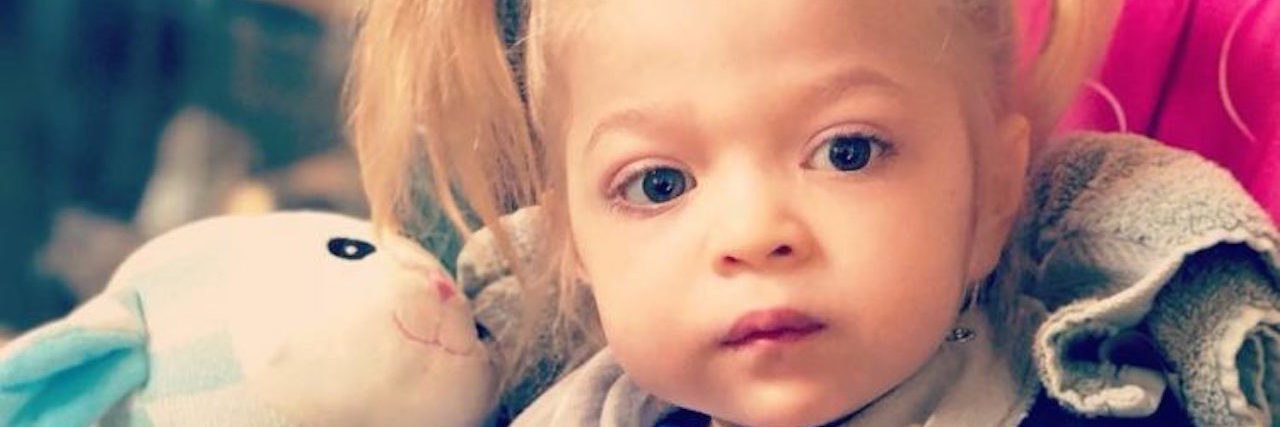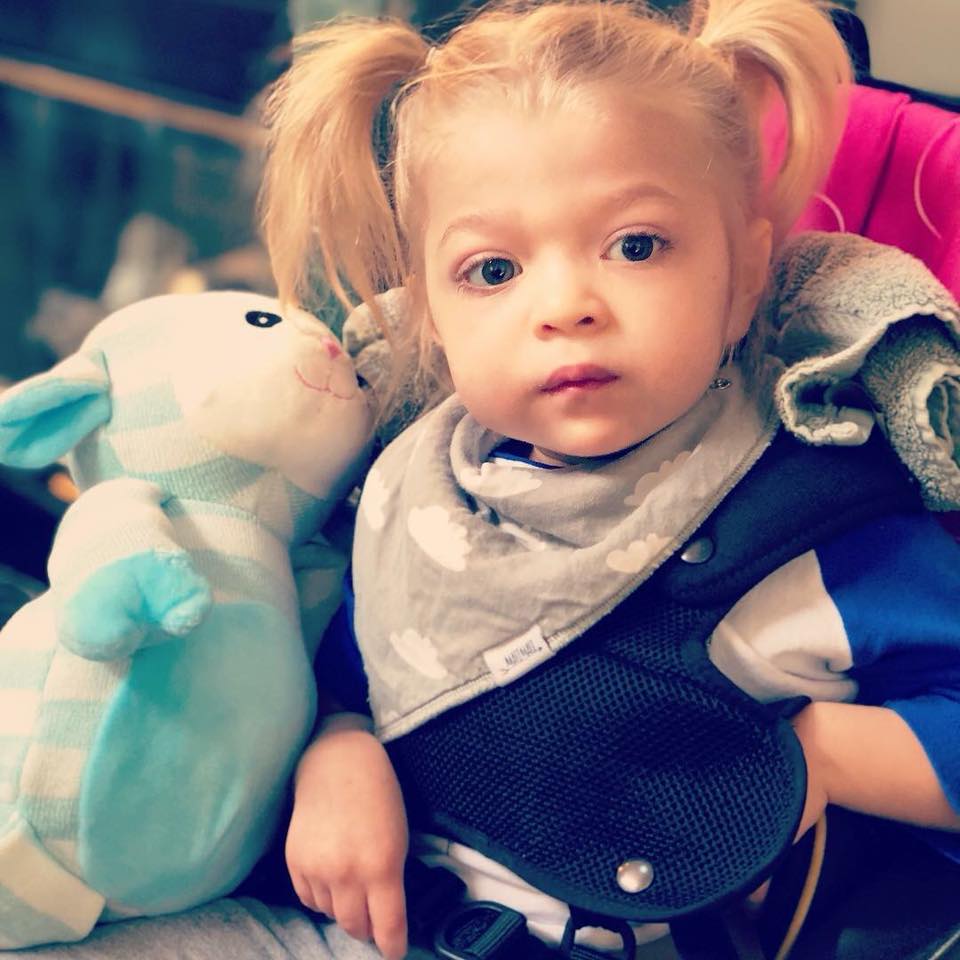Two years ago was our D-Day, or “Diagnosis Day.” I knew from the tone in the doctor’s voice when he called, that the words he was saying would forever change our lives. Still, I had no idea what that would mean for me or my family.
Multiple sulfatase deficiency (MSD) sounded (at the time) like a made up disease, and almost no one had ever heard of it. Even “Dr. Google” had so few places where I could find information, and nothing I found was helpful.
Slow progression. Progressive loss of function. Neurodegenerative. Fatal.
Like a punch to the stomach, my breath was stolen away from me; I couldn’t believe this would happen to me — to my family, to my baby.
I had hope there would be something we could do. Doctors fix things; scientists are always discovering new and amazing ways to combat disease. Surely there would be some sort of experimental treatment we could do to give our daughter at least a chance against this disease?
Nothing. Not one thing.
“Go home and keep her comfortable.” The worst words I have ever heard.

We had gotten used to her being nonverbal, but then the disease started to creep in. First, it started to steal her balance, which is what led to her diagnosis. We compensated with extra physical therapy, some AFO braces to help stabilize her little ankles and allow her to be as active as she wanted to be as a 2-year-old.
Then, her purple walker arrived that sat in our living room, feeling like a neon sign to her decline. Simple ankle braces weren’t enough to keep her on her feet anymore, so this purple walker became a part of our day, helping her stand and walk as much as she could, while at the same time being cumbersome and awkward, making normal toddler activities nearly impossible.
Every day, I thought her condition was as bad as it could get, yet the next day it would show me another skill lost, another indication of her decline.
It wasn’t long before even the purple walker couldn’t keep her on her feet for more than a couple of minutes. She was just too weak. She also started having problems chewing. My perfect little baby who loved Cheetos and meal time would hold food in her mouth for minutes at a time, her brain and tongue in a battle to get the food to the back of her mouth so she could then fight to swallow it.
We had to get her a feeding tube, a hole through her stomach leading directly into her insides. Gone were the days of family meals, watching our precious baby get excited for her favorite things to eat. Gone was the experience of birthday cakes, ice cream on a hot day, holiday meals and traditions. It was replaced with a can of liquid nutrition fed through a tube.
We had to get a specialty chair, now that she can no longer walk. It is supposed to help keep her body in a position that is comfortable, as well as keep her posture as good as it can be to help with her bones and muscles. Her brain is telling her muscles to tighten, pulling her precious little body into a ball. Her hands are curling up, so we have wrist splints. Her muscles pull her forwards out of the seat, so she is strapped back with a vest that attaches to the seat.
This is still my baby, my precious, perfect youngest daughter. The one who was full of spunk and attitude as a toddler — the one who has deep brown eyes that tell such a story, even though she has never spoken.
I watch her try to fight against her progressive condition with all her might. She tries to reach and touch things that she sees, and thrusts her whole body forward in an effort to move a hand. While she still is unable to do it, she keeps on fighting.
I can’t stop fighting either. I knew from the beginning I couldn’t just sit by and watch the progression of her condition without fighting. I have started a 501c3 The United MSD Foundation, found scientists and doctors to start the process towards the first ever viable clinical treatment for this disease, and put every ounce of determination, hope and effort I can into making this treatment in time for my own precious daughter.
Yet, the daily decline continues. My fight has gone from one simply for my child, to a fight for all families struggling with MSD. No parent should ever have to watch their child slowly stolen, piece by piece, without any way to stop it. No matter what happens, I am determined to ensure disease will no longer leave families with no option but to watch death slowly creep in.
I used to think you could work your way to what you have in life; now I know that many of the best people in this world are living with extreme challenges, regardless of how much they have worked towards.
Every day we keep going. We buckle my daughter into her specialty chair, hook up the tube feed, put on the wrist splints, and greet the day — one foot in front of the other, one second at a time. Not because we are strong, but because this is our life.
Our two-year anniversary of D-Day will be no different. We will keep going, keep fighting, and hold onto even the smallest shred of hope that we will win our battle for treatment before it’s too late for our own child.


